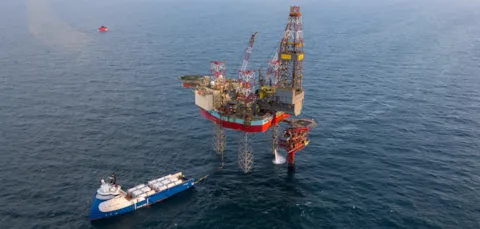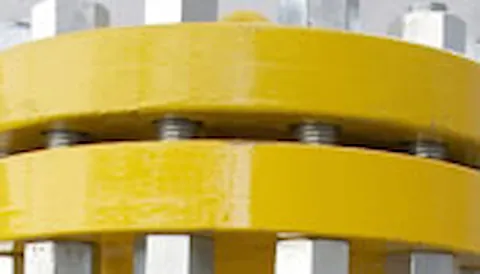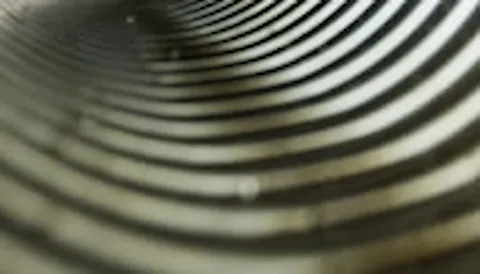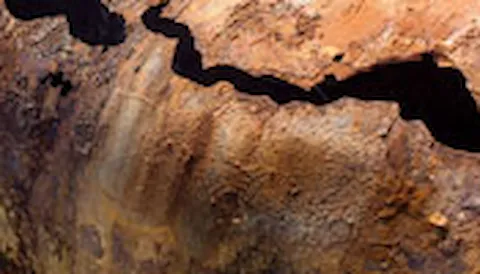Project Greensand: The world's first cross-border carbon storage site
DNV enables pioneering carbon capture and storage (CCS) project navigate complex regulatory and permitting landscape within ambitious schedule.
About Greensand
Project Greensand is a first-of-a-kind project to explore the cross-border transport of carbon dioxide and its offshore storage in the Danish North Sea.
Comprising 23 Danish and international partners from industry, research and academia, the consortium has developed a location and the technology for injecting and storing CO2. Together their goal is to stimulate the creation of a value chain for capturing and transporting emissions. The first stage of Project Greensand focuses on the depleted Nini West field, which has been certified by DNV to store up to 0.3 million tonnes of CO2 per year from 2025/26 and will increase capacity to 0.4 million tonnes per year in a later phase. The full project could potentially store 8 million tonnes per year (equivalent to 13% of Denmark’s annual emissions) by 2030.
Project navigate complex regulatory and permitting landscape within ambitious schedule
Denmark’s green transformation is well underway, with increasing use of renewable energy, electric vehicles, etc. To take the next step and meet its Paris Agreement goals, the country is one of the first to invest in carbon capture and storage. Launched in December 2021, Project Greensand represents the first time CO2 has been successfully captured, transported internationally, and safely stored offshore. Ursula von der Leyen, President of the European Commission, called it “a big moment for Europe’s green transition, and for our clean tech industry”.
Ensuring compliance with evolving legislation and obtaining authority approval promptly
As the first project of its kind, Project Greensand began activities before the legislative context for permitting and compliance for CCS was in place. It was also operating under a very ambitious timeline: Initial funding was received in December 2021-January 2022 with the plan to realise the project by the end of 2022. However, there was no law under which the project could apply for permits until 2022. At the same time, each consortium partner had their own areas of responsibility, with different verification and certification needs. While some areas were based on known technologies and could follow standard oil and gas verification procedures, others involved novel technologies or equipment, requiring the development of new verification approaches.
Wide-ranging DNV support and expertise enable smooth permitting process
With the extremely wide range of independent assurance, verification, certification and technology expertise required, the consortium saw DNV as the natural choice to help navigate their challenging legislation and compliance journey. DNV provided verification and certification services for many of the different aspects of the project –those that had existing pathways and those that didn’t. For example, it provided independent verification of safety- and environment-critical elements. DNV also made the consortium aware of the need to certify the conformity of the reservoir against international CCS standards and the value this would bring to show the Danish government the possibilities of the new technology. Importantly, DNV and the consortium completed verification and supported permitting in time to start installing equipment within the planned timeframe of only one year; allowing the Greensands Project to initiate the world’s first cross-border CO2 storage site in March 2023. DNV has continued to support the Greensand Project and, in September 2024, granted the Nini West the DNV certificates of Site Endorsement and Storage Site. These important milestones supported the authority approval and allowed the consortium to have the confidence in further developing the project.
Impact
- Consortium received all necessary permits and certificates for the project to go-ahead
- Verification was completed with no delays allowing the project to maintain its ambitious timeline
- Contributed to a greater understanding of international CCS standards and how they could be incorporated into the regulatory framework for CCS certification and permitting in Denmark alongside the EU directive.
Key stats
- First cross-border carbon storage site initiated in March 2023
- Project is certified by DNV to store 0.3 million tonnes of CO2 per year by 2025/26 and will increase capacity to 0.4 million tonnes per year in a later phase
- Potential storage of 8 million tonnes of CO2 per year by 2030
- Total annual storage capacity equivalent to emissions from 725,000 Danes or 13% of Denmark’s total emissions



